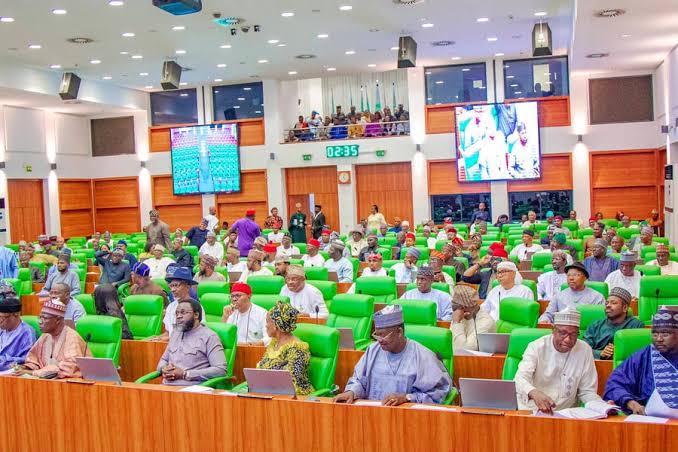The House of Representatives on Thursday, November 21, rejected a proposed constitution amendment aimed at instituting a single six-year term for the president, governors, and local government chairmen across the federation.
The bill, sponsored by Ikenga Ugochinyere (PDP, Imo) and 33 co-sponsors, also sought to divide the country into six geopolitical zones and establish a rotational system for the presidency and governorship within these zones.
Additionally, it proposed that all elections be conducted on a single day.
Lawmakers declined to allow the bill’s sponsor to lead the debate, which sought to amend key sections of the 1999 Constitution, including Sections 76, 116, 132, and 136.
It sought to amend the provision of section 132 of the Constitution t by inserting a new subsection (2) deleting the extant subsection (4) and renumbering the entire section accordingly to provide that an election to the office of President of the Federal Republic of Nigeria shall be rotated between the North and the South regions of the country every six years.
It also sought to amend Section 180 of the Principal Act by substituting “four years with “six years”.
In addition, it sought to alter Section 76 by inserting a new subsection (3) as follows; (3) For the Purpose of Section (1) of this section, all elections into the offices of President, Governors, National Assembly and State Houses of Assembly shall hold simultaneously on the same date to be determined by the Independent National Electoral Commission in consultation with the National Assembly and in accordance with the Electoral Act.
“Section 116 of the Principal Act is amended by inserting a new subsection (3) as follows: For the purposes of subsection (1) of this section, all elections into the offices of President, Governors, National Assembly, State Houses of Assembly and Local Government Councils shall be held simultaneously on the same date to be determined by the Independent National Electoral Commission (INEC) in consultation with the National Assembly and in accordance with the Electoral Act.
“Section 132 of the Principal Act is amended by inserting a new é subsection (2), deleting the extant subsection (4) and renumbering the entire section accordingly: An election to the office of President of the Federal Republic of Nigeria shall be rotated between the North and the South regions of the Country every six years. Provided that where it is the turn of the North or South to present a candidate for election into the office of President, it shall be rotated among the three geo-political zones that constitute the regions. The extant subsection (2) becomes subsection (3) The extant subsection (3) becomes subsection (4) The extant subsection (4) is hereby deleted The extant subsection (5) remains subsection (5).
“Section 136 of the Principal Act is amended by deleting the extant subsections 1 & 2 and replacing them with new subsections I, 2 and 3 as follows: If a person duly elected as President dies before taking and subscribing to the Oath of Allegiance and oath of office or is for any reason whatsoever unable to be sworn in, the person elected with him as First Vice President shall be sworn in as President and he shall appoint a new First Vice President with the approval of a simple majority of the National Assembly at a joint sitting.
“A person who was sworn in as Governor to complete the term for which another person was elected as Governor shall not be elected to such office for another term. The Principal Act is altered by inserting a new Section 188 immediately after the extant 187 and immediately before the extant 188 and renumbering accordingly as follows; 188(1) Notwithstanding any other provision, the Governor shall present a mid-term account of stewardship performance report to the State House of Assembly at the end of the third year of the six-year term.
The State House of Assembly shall determine by a resolution supported by not less than a two-thirds majority of members whether the Governor has by the account of the stewardship report justified his continuous stay in office.
Where, upon the consideration of the mid-term report under subsection (1) of this section, the State House of Assembly is not satisfied with the performance of the Governor for the period he has been in office, the State House of Assembly shall pass a vote of no confidence on the Governor. The State House of Assembly shall immediately commence the process for the impeachment of the Governor from office.”
WARNING: If You Are Not 18+, Don’t Click The Link Below 👇🫣
https://headacheaim.com/kx6iepv2qm?key=6c14bd1d68e1eba721851f19778f5efe
Please don’t forget to “Allow the notification” so you will be the first to get our gist when we publish it.
Drop your comment in the section below, and don’t forget to share the post.
Never Miss A Single News Or Gists, Kindly Join Us On WhatsApp Channel:
https://whatsapp.com/channel/0029Vad8g81Eawdsio6INn3B
Telegram Channel:
https://t.me/gistsmateNG















